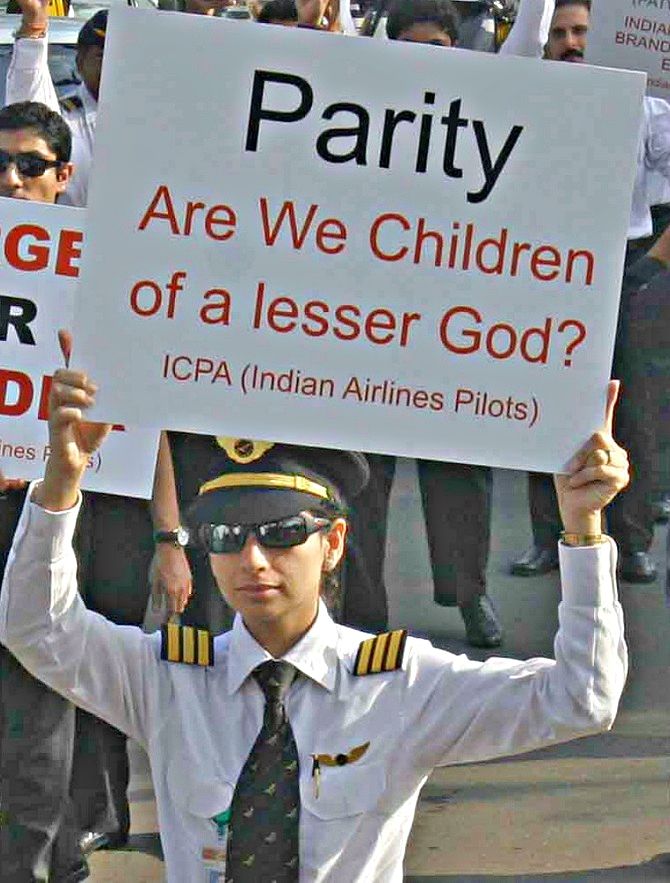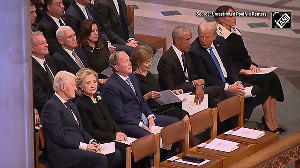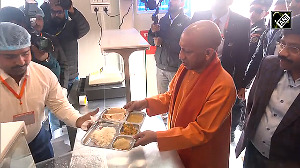Airlines tell Arindam Majumder and Aneesh Phadnis they are forced to look at expats due to a lack of commanders, a position that requires experience.

Arav Joshi, 26, completed his flying course from a New Zealand-based training academy in 2012. After that did not translate into a job, he topped it with a type-rating course from a Pune-based facility in 2014. The total expenditure came to around Rs 50 lakh.
He is still without a job.
He is part of the 7,000-odd who have a commercial pilot licences (CPL) but await a job. They grouse that airlines in India don't have a system to develop home-grown talent and have to depend on expatriate pilots.
An incident of misbehaviour by an expat pilot of Jet Airways with an Indian passenger has again highlighted the contentious issue. The National Aviator's Guild (NAG), the Jet pilots' union, has directed its members not to fly with expat pilots from May 1.
With Indian aviation growing at 20 per cent annually, airlines have expanded at a fast rate. Indian airlines have more than 800 aircraft on order. This has also led to a serious personnel shortage, mainly of pilots.
Airlines have frequently banked on expat pilots, though the cost of hiring them is significantly higher than employing their Indian counterparts.
Jet is currently hiring pilots from Arik Air of Nigeria and from Russia for its Airbus A330 and Boeing 777 planes. It had had foreign pilots in service since the late 1990s; this is the first time that its local pilots have raised a red flag against it.
The pay of an expat pilot is around 40 per cent higher than Indian ones and their salary is paid in dollars. They also get generous housing and travel benefits in their contracts.
"You hire an expat, wait for security clearance from DGCA (the sector regulator) for about six months and pay him without flying and then pay him tax-free, when you have Indian pilots experienced and sitting," says a pilot with a private airline.
D Balaraman, president of NAG, says the union is demanding increments for its members and better working conditions.
While an Indian commander in Jet earns an average annual salary of around Rs 5.5 lakh, a foreign pilot is paid around $12,000. This works to around Rs 14.3 lakh at the current exchange rate.
Also, foreign pilots have contracts, which allow for eight weeks work and two weeks leave and the NAG has been seeking similar benefits for its members, Balaraman said.
"Foreign pilots earn more with lesser productivity than Indian pilots," he added.
Airline executives say they are forced to look at expats due to a lack of commanders. Pilots require experience to become a commander.
According to sources, CPL holders, with a rating on a particular aircraft, need to undergo three to six months training before being selected as first officer.
The licence examination for the post of commander requires minimum 1,500 hours of flying.
A first officer can get upgraded to a commander's post in anywhere between three to six years, depending upon an airline's training requirements and would have at least flown 2,500 hours before taking the post.
"This is like why a US-based company would hire Indian engineers despite the regulatory difficulties; they don't have the talent. Similarly, we have to hire expat pilots, as commanders are not available in India," said a senior airline executive.
Critics say this shows lack of planning.
"An airline does its fleet planning much in advance. It can easily recruit Indian pilots and train them for the future," said a senior pilot of Air India.
Indian carriers say they have started cadet pilot programmes.
IndiGo President Aditya Ghosh said, "In the past 10 years, we have inducted 941 fresh CPL holders, who had only a basic flying licence, and trained them to become captains and trainers on the A-320 airplane. Quite a few of these young CPL holders are now flying as pilots and trainers in IndiGo and abroad."












 © 2025
© 2025